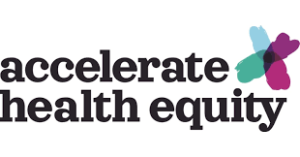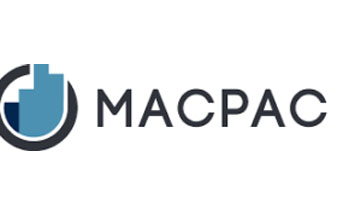Advocates Seek More State Staff for Medicaid Eligibility Redeterminations
With the continuous Medicaid eligibility that marked the COVID-19 pandemic coming to an end on April 1 and roughly one-third of the 3.6 million Pennsylvanians enrolled in Medicaid thought to be in jeopardy of losing their coverage, health care advocates are asking the state to invest in more staff to help current participants submit the paperwork needed to retain their coverage as part of what has become known as “Medicaid unwinding.”
In a letter signed by representatives of the Pennsylvania Health Law Project, the Pennsylvania Health Access Network, the Pennsylvania Partnership for Children, and others, advocates noted that the county assistance offices that will play a major role in this process are already understaffed and need more help if deserving Pennsylvanians are to avoid falling through the Medicaid eligibility cracks. The state has acknowledged the staffing problems at its county assistance offices.

PHE-Phase1-Newsletter-HalfPage-Banner-MA-Renewal
The advocates also have asked the state to publish more information about Medicaid eligibility redetermination and to extend Medicaid and Children’s Health Insurance Program (CHIP) eligibility for children for another year.
A troubled Medicaid unwinding effort would be a troubling development for Pennsylvania’s safety-net hospitals because those hospitals care for especially large numbers of low-income and Medicaid-covered patients and could face the possibility of finding themselves serving significantly more uninsured and underinsured patients than they already do – without reimbursement for that care.
Learn more about the challenges inherent in the Medicaid eligibility redetermination effort and what the advocates seek from the state in the WESA-FM radio article “With major Medicaid changes ahead, advocates want to see increased staffing for assistance offices.”
 Pennsylvania Act 2, passed earlier this year, appropriates $225 million in federal money and the state has earmarked a portion of that money for hospitals based on how many beds they have. Hospitals that serve especially high proportions of Medicaid patients, however, will receive funding over and above the amount targeted to them based on bed count alone.
Pennsylvania Act 2, passed earlier this year, appropriates $225 million in federal money and the state has earmarked a portion of that money for hospitals based on how many beds they have. Hospitals that serve especially high proportions of Medicaid patients, however, will receive funding over and above the amount targeted to them based on bed count alone. The new effort, dubbed “Accelerate Health Equity,” will seek to bring “…together organizations across the region to produce tangible improvement in health inequities, and ultimately achieve measurable, positive changes in health outcomes in Philadelphia.” Among the participants in the endeavor are AmeriHealth Caritas, Children’s Hospital of Philadelphia, the City of Philadelphia, Drexel University, Independence Blue Cross, Jefferson Health, Main Line Health, Penn Medicine, Philadelphia College of Osteopathic Medicine, Temple Health, and Trinity Health Mid-Atlantic.
The new effort, dubbed “Accelerate Health Equity,” will seek to bring “…together organizations across the region to produce tangible improvement in health inequities, and ultimately achieve measurable, positive changes in health outcomes in Philadelphia.” Among the participants in the endeavor are AmeriHealth Caritas, Children’s Hospital of Philadelphia, the City of Philadelphia, Drexel University, Independence Blue Cross, Jefferson Health, Main Line Health, Penn Medicine, Philadelphia College of Osteopathic Medicine, Temple Health, and Trinity Health Mid-Atlantic. Among the possible reasons for this low rate, observers speculate, is greater vaccine hesitancy among low-income individuals (as identified in a nation-wide survey), less flexible work schedules, and economic barriers such as lack of transportation or child care.
Among the possible reasons for this low rate, observers speculate, is greater vaccine hesitancy among low-income individuals (as identified in a nation-wide survey), less flexible work schedules, and economic barriers such as lack of transportation or child care. In separate news releases the Wolf administration announced that Miller, who has led DHS since 2015, “will be moving on to a new opportunity outside Pennsylvania” and leave her job at the end of April and that she will be replaced by Meg Snead, who currently serves as the governor’s Secretary of Policy and Planning.
In separate news releases the Wolf administration announced that Miller, who has led DHS since 2015, “will be moving on to a new opportunity outside Pennsylvania” and leave her job at the end of April and that she will be replaced by Meg Snead, who currently serves as the governor’s Secretary of Policy and Planning. extend the postpartum coverage period for individuals who were eligible and enrolled in Medicaid while pregnant to a full year of coverage, regardless of changes in income. Services provided to individuals during the extended postpartum coverage period will receive an enhanced 100 percent federal matching rate;
extend the postpartum coverage period for individuals who were eligible and enrolled in Medicaid while pregnant to a full year of coverage, regardless of changes in income. Services provided to individuals during the extended postpartum coverage period will receive an enhanced 100 percent federal matching rate; According to the GAO report,
According to the GAO report, In its letter, SNAP asked Congress for:
In its letter, SNAP asked Congress for:
 The October 2020 MACPAC meeting opened with a panel discussion on restarting Medicaid eligibility redeterminations when the public health emergency ends. It included Jennifer Wagner, director of Medicaid eligibility and enrollment at the Center on Budget and Policy Priorities; René Mollow, deputy director for health care benefits and eligibility at the California Department of Health Care Services; and Lee Guice, director of policy and operations at the Department for Medicaid Services, Kentucky Cabinet for Health and Family Services.
The October 2020 MACPAC meeting opened with a panel discussion on restarting Medicaid eligibility redeterminations when the public health emergency ends. It included Jennifer Wagner, director of Medicaid eligibility and enrollment at the Center on Budget and Policy Priorities; René Mollow, deputy director for health care benefits and eligibility at the California Department of Health Care Services; and Lee Guice, director of policy and operations at the Department for Medicaid Services, Kentucky Cabinet for Health and Family Services.